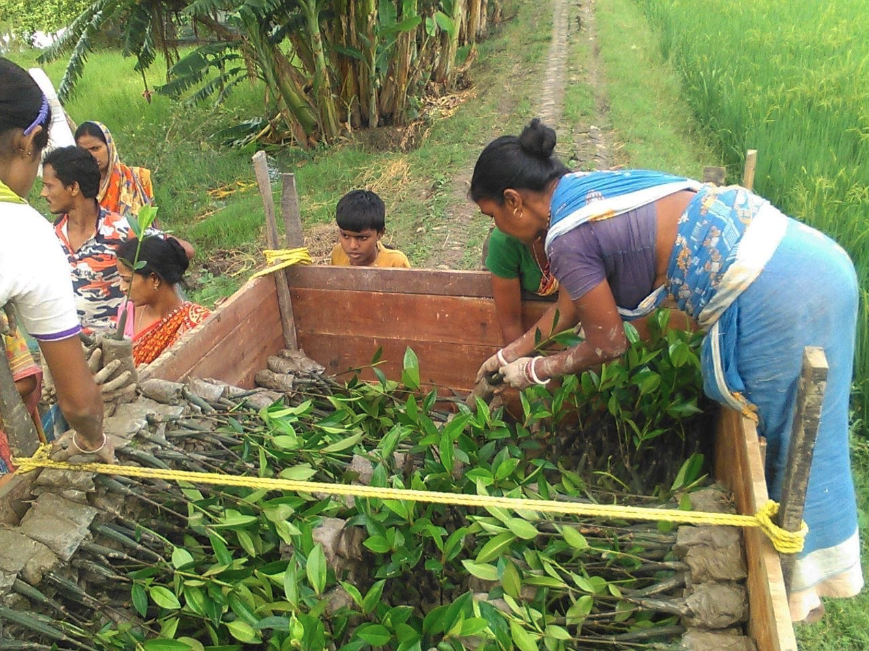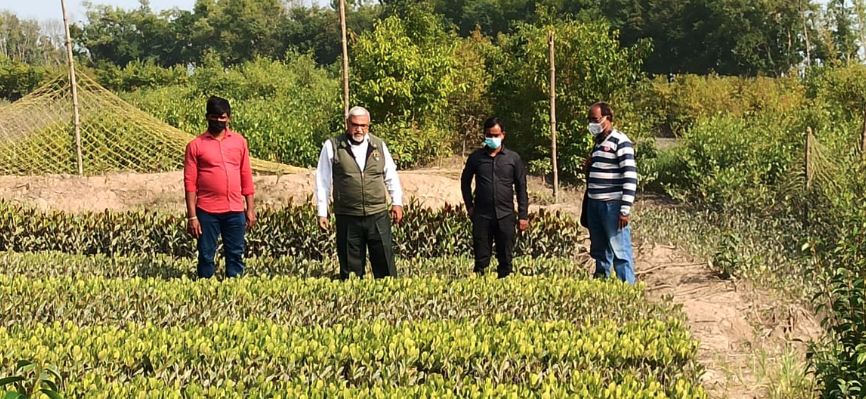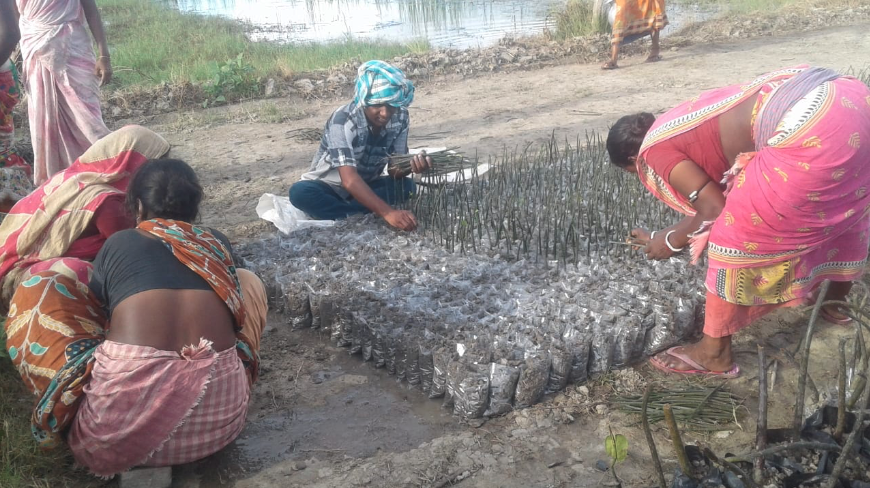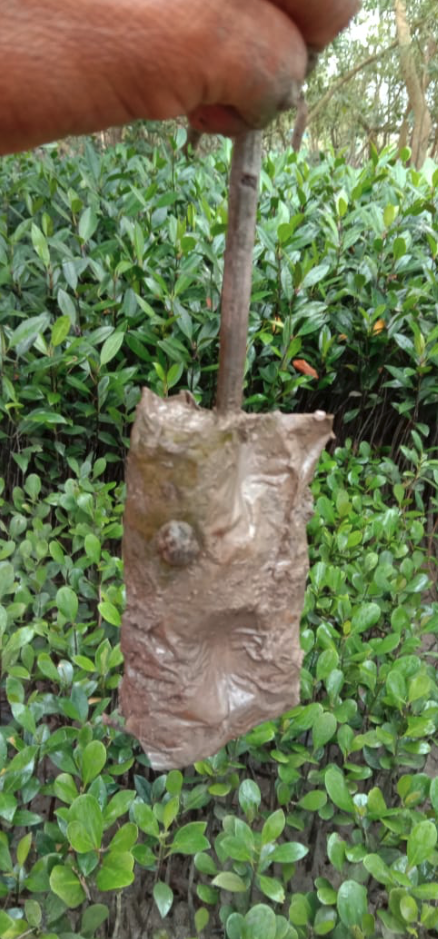Mangrove Nursery
New Hope for Environment & Livelihood

Location/Club: Rotary Club of Cossipore, District 3291, West Bengal, India
Mangroves are the first line of defense against natural calamities. Thus, the Rotary Club of Cossipore’s RCC Arpan Mahila Samity along with many others engaged for livelihood in this biosphere and with the help of forest department, initiated a nursery of different varieties of Mangroves like Sundari, Goran, Bani, Kakra, Gorjan and Bakul Kakra. The women of the Rotary Club of Cossipore are also involved with this nursery and its care.
Description
The project is helping the community for their economic development. The importance of mangroves can not be underestimated just as trees, especially when the world is experiencing a rise in ocean water level. Furthermore, cyclones/tsunamis are taking their toll with shoreline erosion and devastating coastal habitat and natural ecosystems.
Planting mangroves reduces shoreline erosion and protects coastal communities against coastal flooding and high winds and waves. They provide livelihoods to the communities living in these areas because they provide habitat for fish and shellfish. The mangroves detritus or submersed maze of aerial roots provide plenty of bacteria and food for the growing fish and selfish youngsters who hide here from predators or larger animals.
Project officer Mr. Shekhar Mohanti regularly visits the nurseries which hold inventories from 50,000 to 200,000 saplings which can be supplied at a reasonable rate and notice.
Rotary Club Cossipore has its RCC in Basanti Block in South 24 Paraganas and a Primary school in Tridibnagar Jharkhali which is in the midst of Sundarban eco system adjacent to Bay of Bengal. With Global warming and climate change, cyclones in Bay of Bengal became very frequent and Feni (in 2019 with highest wind speed 250 km/h), Amphan (in 2020 with highest wind speed 260 km/h) and Yaas (in 2021 with highest wind speed 140 km /h) regularly devastating the coast / river lines and lives and livelihood of coastal communities.
As mangroves are the first line of defense against such natural calamities, RC Cossipore’s RCC Arpan Mahila Samity along with many others engaged for livelihood in this biosphere also initiated, with the help of forest department the nursery of different varieties of Mangroves like Sundari, Goran, Bani, Kakra, Gorjan, and Bakul Kakra. The women of the RCC are also associated with this nursery and its care.
Process of Nursery starts by collection of mangrove seed/ propagule which come afloat with high tide and settle on river bunk / shoreline during low tide. The women collect these seeds and plant these in small disposable pots which are later transplanted to larger disposable pots before finally transported in bulk to the forest department or NGOs who buy these for final plantation on shorelines as an afforestation drive or take up transplantation / afforestation as being outsourced by forest department or NGOs.
The project is helping the community for their economic development. The importance of mangroves cannot be underestimated just as trees especially when the world is experiencing raise in water level and cyclones,/ tsunamis taking its toll on shorelines by shoreline erosion and devastating coastal habitat and natural ecosystem. Planting mangroves cannot only reduce shoreline erosion and protect coastal communities against coastal flooding, high winds and waves and also provide livelihood to the community living in these area by providing habitat for fish and shellfish in the mangroves detritus or submersed maze of aerial roots of mangroves which provide plenty of bacteria and food for the growing fish and selfish youngsters who hide here from predators or larger animals.
Project officer Mr. Shekhar Mohanti regularly visits the nurseries which hold inventories from 50000 to 200,000 saplings which can be supplied at a reasonable rate and notice.
At present the nurseries are operating in a low scale with basic hand tools and nursery utilities and the women folks who are engaged are getting more familiar to raise the healthy saplings with less wastage.
This will be a continued project. It is expected to have a great positive impact on the environment by protecting shorelines from erosion and safeguarding local lives and livelihoods.



